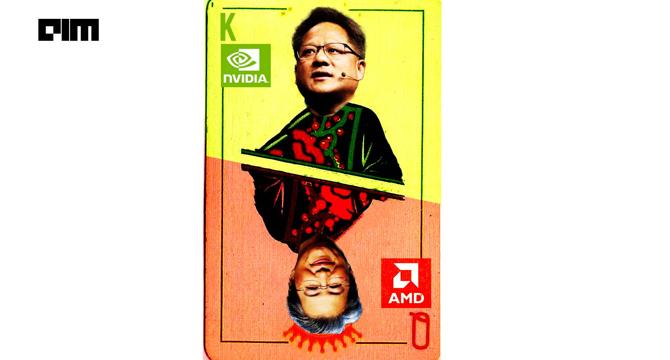Analyticsindiamag
1M
123

Image Credit: Analyticsindiamag
AMD is Finally Catching up with NVIDIA Blackwell
- AMD CEO Lisa Su said the company's MI325 GPU accelerator will compete against NVIDIA's H200 and its MI350 series versus Blackwell. AMD is slowly narrowing the gap versus NVIDIA in the GPU market and is expected to close the performance gap more quickly with its latest series of GPU hardware. Andrew Dieckmann, CVP and GM of data centre GPU at AMD, stated they have yet to find NVIDIA being better in any workload. AMD raised its AI guidance revenue to $5 billion, up from its previous quarter's $4.5 billion forecast in the wake of the AI boom.
- AMD generated $3.5bn in data centre revenue in Q2 FY24, a 122% YoY increase. Operating income at the firm remained at $724m while net income hit $771m. AMD expects TAM for its data centre AI accelerator to reach $500bn by 2028 and to grow by over 60% annually. However, CEO Lisa Su did caution that the future is unpredictable and the growth of customer acquisitions is not always consistent.
- AMD is developing its ROCm stack, offering an open alternative to NVIDIA's closed software ecosystem, appealing to customers wanting flexibility and cost-effective AI compute options. It is also betting big on Ryzen AI Pro 3000 processors. Lisa Su said the next-gen MI350-series silicon will be on track to launch in H2 2025 and promises customers the largest generational increase in AI performance they have ever delivered.
- In the client segment, AMD's revenue was up by 29% YoY at $1.9bn. Partnerships for AMD include Oracle, using its Instinct GPU accelerators to power its OCI computer supercluster to manage AI workloads. AMD has extended support to Meta's Llama 3.2 open-source models and has partnered with Microsoft to enable Copilot + on AMD-powered AI PCs.
- AMD closed the acquisition of Silo AI to accelerate the deployment of AI models on AMD's hardware. AMD also announced an agreement to acquire ZT Systems, an AI computing infrastructure provider, subject to regulatory clearance. AMD and Intel announced a collaboration to broaden the x86 ecosystem by developing an advisory group that includes Dell, HP, Lenovo, Meta, Microsoft, Oracle and Red Hat.
Read Full Article
7 Likes
For uninterrupted reading, download the app